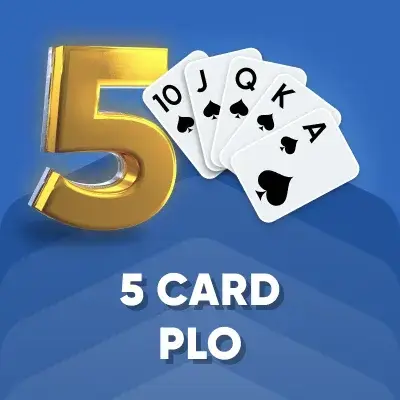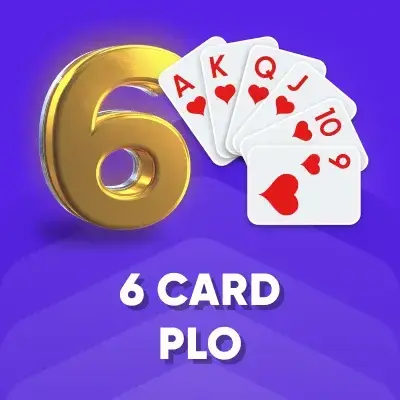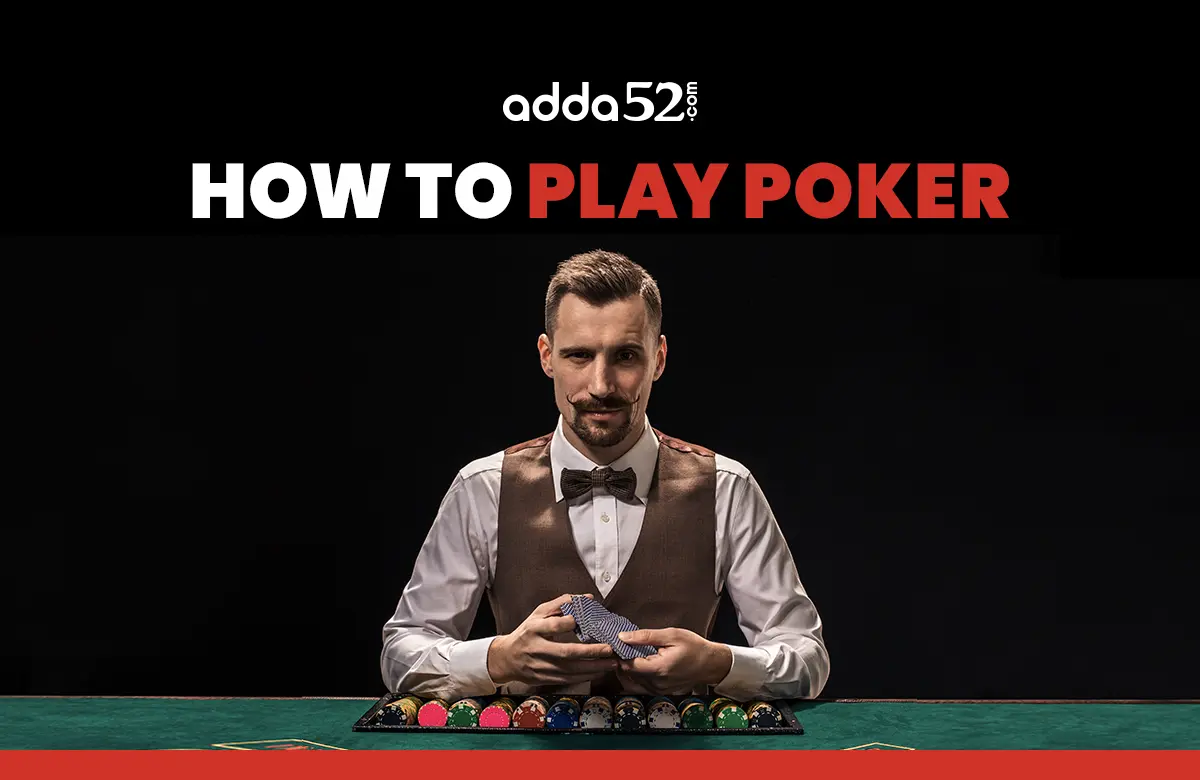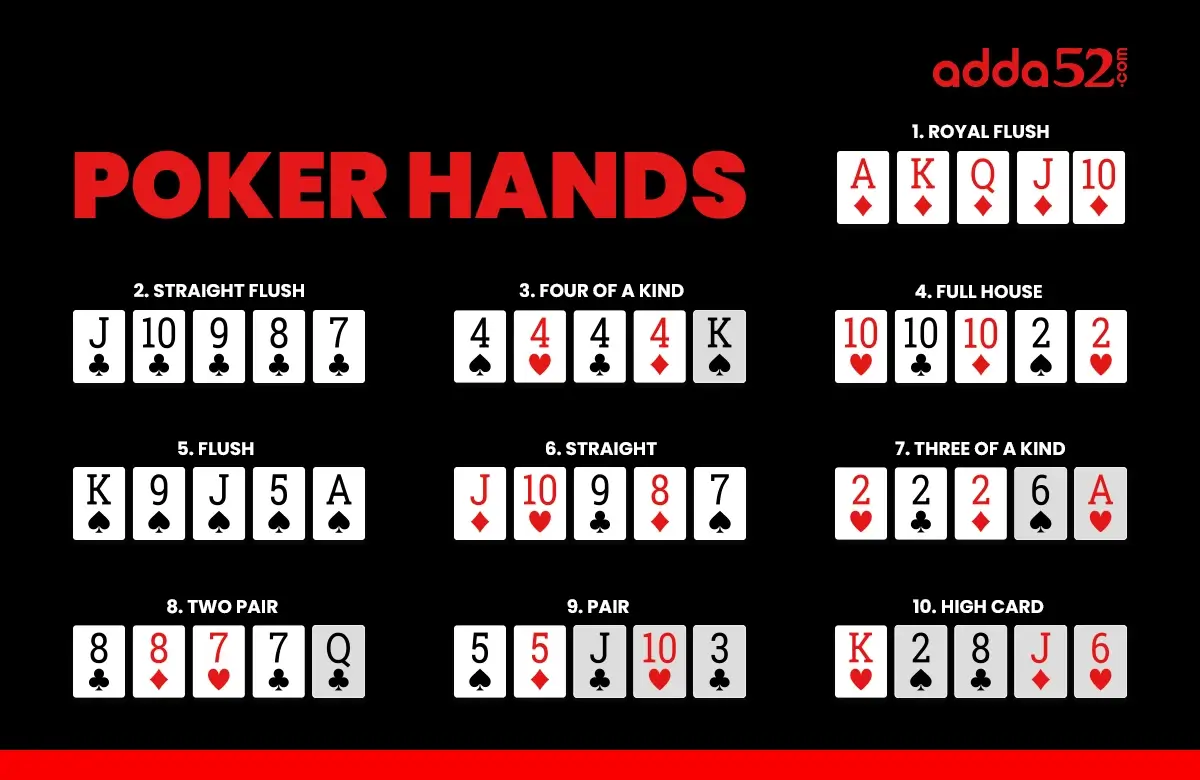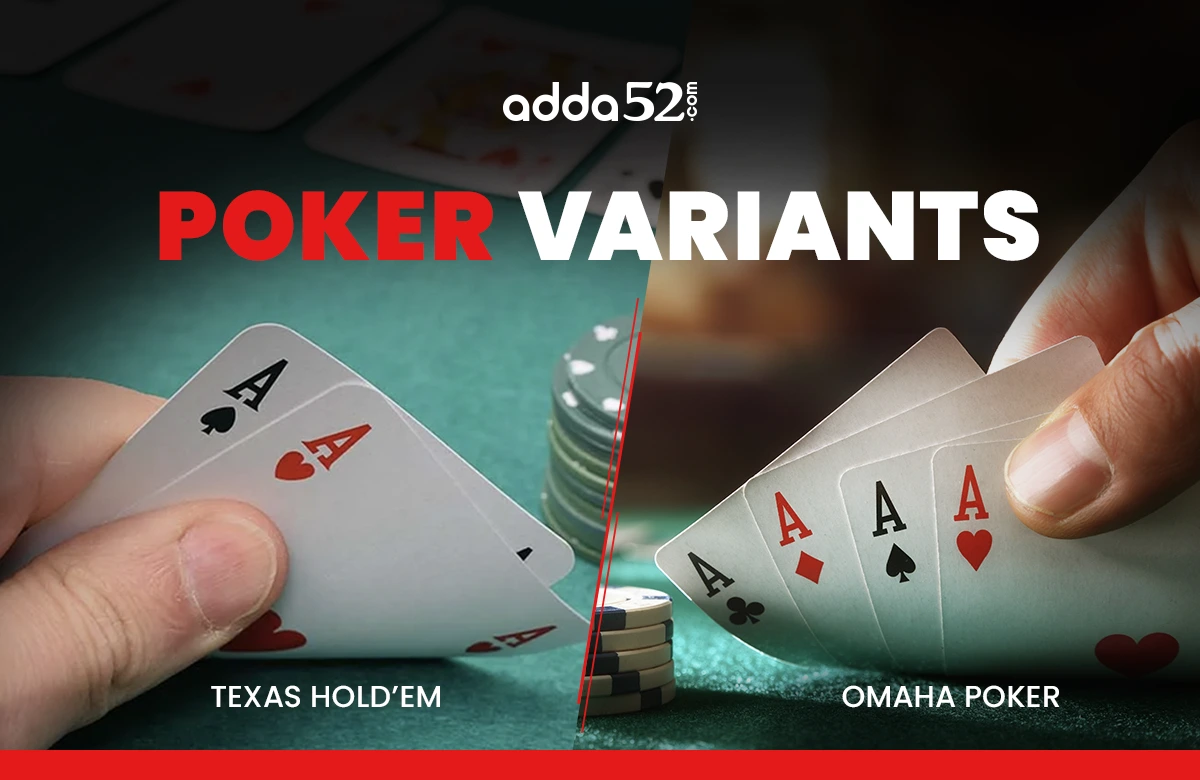What is Poker?
Poker is a popular card game that involves both skill and strategy. The game's objective is to win by betting on the value of your hand. If your hand is better than your opponent's, you win the round and the pot.
Poker is usually played with a standard deck of 52 cards. The Ace holds the highest value, and the Two hold the lowest. The suits (Clubs, ️ Diamonds, Hearts, Spades) hold equal value in poker.
History of Poker Game
Poker has a rich history dating back to the early 19th century in the United States. Its origins stem from various European card games, influenced by the French game "poque" and the German game "pochen." The name "poker" is thought to have been derived from the slang word "poke," a term used by card players to describe bluffing or hiding one's true intentions.
Throughout the years, poker has evolved into a popular pastime. Introducing the 52-card deck and the concept of betting rounds contributed to the game's complexity. Poker continued to grow in popularity, and by the 20th century, it had become a staple in casinos and home games.
Today, poker has transcended borders and cultures, with various variants played globally, including Texas Hold'em, Omaha, and Seven-Card Stud. Its enduring appeal lies in the combination of skill, strategy, and the element of outsmarting the opponents that keeps players returning to the table.
Online Poker Game Variations
Texas Hold'em
One of the most popular poker variants is Texas Hold'em. This game is perfect for those who enjoy a strategy-based game. Players are dealt two cards each, and five community cards are dealt on the table, shared by all the players. The goal is to make the best possible 5-card hand using any combination of your two-hole cards and the five community cards.
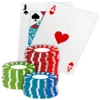
Omaha Poker
Omaha Poker is another popular variant of poker. Unlike Texas Hold’em, each player is dealt four-hole cards instead of two and five community cards on the table to be shared among players, similar to Texas Hold’em. Players must use exactly two of their hole cards along with three community cards to make their highest-ranking five-card hand.
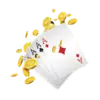
Omaha Hi/Lo
Omaha High/Low, also commonly called Omaha/8, is a split pot game. This means half the money goes to the high hand, and the other half goes to the low hand. In this game, the player gets two hole cards, and they can use any combination of hole cards and community cards to make the strongest 5-card hand.
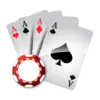
4-Card Omaha Poker
Unlike traditional poker, players are given four-hole cards and can only use two to make the hand. The other three cards must be used from the five community cards on the table to complete the hand.
5 Card Omaha
If you are looking for a form of poker that requires a little more strategic thinking, 5 Card Omaha Poker might be right up your alley. This game is similar to Texas Hold'em, but each player is dealt five private cards, and they have to make the best hand using two hole cards and three community cards. Poker players all over the world enjoy playing 5 Card Omaha. In this game, players have to be more mindful of what their opponents are holding.
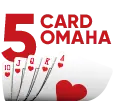
Seven-Card Stud
Another well-known variant of poker is Seven Card Stud. This classic game is typically played between 2 to 8 players. In this game, each player is dealt seven cards throughout the hand, three of which are face down and four of which are face up. Players must make the best five-card hand possible using any combination of their seven cards.

5-Card Draw Poker
5-Card Draw is a very simple and easy-to-play variant of poker suitable for all skill levels. All the players are dealt five cards each. The game's objective is to have the best possible five-card hand at the end of the final betting round to win the pot.
Open-Face Chinese Poker
Open-Face Chinese Poker is an exciting and engaging form of poker. In this variant, each player is dealt 13 cards, and the objective is to segregate their 13 cards into three different categories of cards:
- 5 strongest cards
- 5 medium strength cards
- 3 weakest cards
After this, all the players reveal their strongest, mediocre and weakest hands to determine the winner. The rules of OFC poker are somewhat different from the traditional form of poker.
Razz Poker
Razz is another poker variant of seven-card stud, but it is designed explicitly for lowball games. In Razz, the lowest hand wins, so players always strive to make the weakest possible hand.

Short Deck Poker
In this format, all the cards ranking from 2 to 5 are removed from the standard 52-card deck, and the game is played with just 36 cards, adding more thrill and action to the game.
Crazy Pineapple Poker
In crazy pineapple poker, players are dealt three-hole cards. After one round of betting and the flop being opened, the players can discard their third hole card. After this, the game becomes similar to Texas Hold’em Poker.
Heads Up Poker
Heads-up Poker, also known as Sit-n-Go Poker, is a form of poker in which only two players play against each other. Here, you get tested for your temperament and game skills together.
HORSE Poker
It is a very versatile game of poker where HORSE is the acronym for Hold’em, Omaha, Razz, Seven-card Stud and Eight-or-Better. This game tests your adaptability and tests you across all these poker variants.
Indian Poker
- Indian poker, also known as "Blind Man's Bluff," involves players seeing all cards except their own.
- Players place their card on their forehead without viewing it, employing strategy and reverse bluffing.
- Played with a standard 52-card deck, ranked from Two to Ace, with suits ranked from highest to lowest: Spades, Hearts, Diamonds, Clubs.
- Ideal for 3 to 12 players but can accommodate 2 to 20.
- The initial dealer and seating are determined by randomly drawing cards from a shuffled deck.
- The highest card drawer chooses a seat first and becomes the initial dealer.
- After seating, the deck is shuffled and cut to the dealer's right-hand opponent.
- Each player receives a face-down card in clockwise order, starting from the dealer's left, without looking at it.
Play Poker Online: A Game Of Skill
Poker is a game of skill where you need to understand the rules and use strategy to outsmart your opponents. Each card has a value, and it's about making the best decisions based on your cards and those on the table. It's not about luck; skill and tactics play a big part in winning. The deck has numbers from two to ten, and then there are Jack, Queen, King, and Ace. These cards come in four suits: spades, hearts, diamonds, and clubs, and all of them are equally important.
Whether you are playing different types of poker, they all follow the same rule of using the top five cards to make your hand. It's like building the best combination of cards to win. So, whether it's a two or an ace, they all play a role in the game.
How to Play Poker Online
Poker is a simple game that anyone can grasp. Follow the steps highlighted below to learn how to play poker.
Getting Started
- Poker is a card game played among two or more players.
- A designated dealer distributes cards to each player, the number of which depends on the specific poker variant being played.
Sitting Positions
- Players have different positions in poker, including the early, middle and late positions.
- Early positions include under the gun, under the gun + 1, under the gun + 2.
- Middle positions include lowjack and highjack.
- Late positions include cutoff and dealer.
- Players have specific positions like the ‘small blind’ and ‘big blind.’
Betting Rounds
- Players bet, call, check, raise or fold based on the strength of their hands, the community cards, and the table dynamics.
Hole Cards
- Each player is dealt a set of cards known as ‘hole cards.’
- These hole cards are private and only visible to the respective player.
Community Cards
- The cards dealt on the table are called ‘Community Cards.’
- In the ‘Flop’ round, three community cards are revealed.
- In the ‘Turn’ round, the fourth community card is revealed.
- The fifth and final community card is turned upright in the' River' round.
Hand Evaluation
- Players assess the strength of their hands based on the combination of hole cards they hold.
- Common poker hands include pairs, three-of-a-kind, straights, flushes, full houses, and more.
Winning the Round
- At the end of the betting rounds, the player with the highest ranking hand is declared the winner.
- Alternatively, a player can win by convincing all others to fold, meaning they give up on the round.
Online Poker Game Rules
The basic rules of poker are simple:
- Poker aims to win the pot by creating the highest-ranking hand using any combination of the hole cards and the community cards.
- To win at poker, you need to understand the value of each hand and how it changes with the addition of the community cards.
- You must learn to read your fellow players and know when they are bluffing.
- It would be best if you bet according to your hand's strength and the pot's size.
- The most important thing to remember is to play responsibly.
The basic rules of poker are relatively simple, but it can take some time to master the game. The first thing you need to know is the ranking of hands. Aces are high, and 2s are low.
The other cards follow from 3 to 10, then Jack, Queen, and King. The next thing you need to understand is betting. Each player places the bets in the pot. The bet depends on the cards they hold and the chips they have left.
After the last betting round is completed, it is time for the showdown. This is where each player reveals their hand, and the winner is announced. When the two players are left at the end, the one with the better hand is announced as the winner.
Poker Game Hand Rankings
Poker is a game of strategy, which involves knowing which cards to hold and which to fold. Understanding the different kinds of poker hands is the key to being a successful poker player.
A poker hand consists of five cards, and the hand's rank depends on the combination of those cards. Here are the standard poker hand rankings, from highest to lowest:
-
Royal Flush
A royal flush that goes from Ace to 10, all in the same suit. (A K Q J 10 )
-
Straight Flush
Five cards in a sequential order, all of the same suit. (Q J 10 9 8)
-
Four of a Kind
Four cards of the same rank. (10 10 10 10 J)
-
Full House
Three cards of the same rank, plus two more cards of the same rank. (4 4 4 J J)
-
Flush
Any five cards of the same suit. (A J 10 4 2)
-
Straight
Five cards in sequential order. (6 5 4 3 2)
-
Three-of-a-Kind
Three cards of the same rank. (8 8 8 3 7)
-
Two Pair
Two cards of the same rank and two more of the same rank. ( 6 6 4 4 J)
-
Pair
Two cards of the same rank ( 9 9 4 Q J)
-
High Card
When it is none of the above, it is the high card (K 3 10 9 2)
If you want to be a successful poker player, it is important to memorize the ranking of hands.
How to get started with Adda52 Poker?
For Existing Users
If you are an existing user, you need to follow the mentioned steps:
- You can log into the Adda52 poker app.
- You can choose the poker variant you would like to play.
- If you are interested, you can also participate in tournaments and leaderboards.
For New Users
If you are a new player and want to start playing poker on Adda52, you need to follow the given steps:
- You can download the app from the App Store or the Adda52 website.
- Once you have downloaded the app, you can sign up for free to set up your account.
- Once you have signed up, look out for the Poker Tips and Tutorials section to learn the basics of the game by viewing the “Learn How to Play Poker” tutorial video.
- If you are new to poker, start by playing free and cash games at low-stake tables.
- If you have already played poker before, you can choose the table and play free or cash games.
Desktop Poker
To play poker online on a desktop, you need to follow the steps below:
- You can visit the Adda52 website at adda52.com.
- You can play poker directly by clicking the Play Now button on your desktop.
- You can log in using the same login credentials you used to log in on the Adda52 app.
- Once logged in, you can choose the poker variant you want to play.
- Once you have chosen the poker variant of your preference, you can select the room and table where you want to play.
Or
- Click on the “Download App” button to download the exe file.
- Once you have downloaded the app, install the app on your desktop.
- You can log in using the same login credentials you used to log in on the Adda52 app.
- Once logged in, you can choose the poker variant you want to play.
- Once you have chosen the poker variant of your preference, you can choose the room and table where you want to play.
Why Play Poker Online on the Adda52
Playing Poker games online is the best source of entertainment, and once you master poker rules, you can even indulge in cash games. You will find several platforms to play Poker with real cash, with Adda52 offering one of the best poker experiences. The top features of the app and website will take your gaming experience to the next level. Here are some of the best features that Adda 52 has to offer:
Superior Gaming Experience - Our website offers a superior gaming experience. Its features include attractive designs and multiple table options for High rollers and novice players. You won’t have to download the app; you can play Poker online in India on browsers like Google Chrome, Mozilla Firefox, etc. (It is incompatible with IE).

iTech Labs Certification - Adda52.com, as a platform, has been certified by iTech Labs for fair gameplay. This means we have a global standard in gaming software reliability. This means all the players will have an equal possibility of winning. The app is designed to offer everyone the same experience and opportunities. Each player gets the cards randomly, and there is no foul play. So, the outcome of each match will depend on your skills.

Safe & Legal - You can easily play poker without worrying about breaking the law. Playing these games is completely legal at Adda52.com. The gameplay is safe & secure and compliant with existing Indian Law. Since poker is a skill-based game, you can even participate in cash games without hesitation.

Varied Payment Options - You can deposit money via various payment options, such as Credit cards, Debit cards, Net Banking, etc. Players can also purchase virtual chips and play poker on the site in a highly user-friendly, efficient, and completely secure way.

Dedicated Customer Support Team—Whenever you face any troubles, we will be right there to support you. Our customer support team is committed to ensuring the best customer service to all Adda52.com players. You can easily contact our support team, and they will assist you with everything. Simply contact us at 1800-572-0611 (Timings: 10:00 AM—12:00 AM | Mon-Sun ) or email us at info@adda52.com on all working days.

Instant Withdrawals: Adda52 provides a straightforward and easy-to-use withdrawal process. When a user decides to withdraw a certain amount, it is immediately taken out of their Adda52 account, preventing them from using that specific amount for playing. The system first deducts the requested amount from the deposited funds during withdrawal. If the deposit balance does not cover the entire withdrawal, the remaining amount is subtracted from the user's winnings. This ensures a transparent and fair approach to handling withdrawals on Adda52.
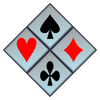
GST Cashback: At Adda52, players receive 100% cashback on the GST charged. This means players can enjoy a full refund of the GST amount, adding extra value to their gaming experience.

Deposit Offers: Adda52 provides a variety of deposit offers for both new and existing users. First-time users can enjoy special promotions, no-cost entries, etc. Additionally, there are exclusive deposit offers for second-time deposits and beyond, ensuring that players continue to receive valuable incentives as they engage with the platform.

Leaderboards: Monthly leaderboards allow players to show their skills and bank on them. As users play more, they climb the leaderboard rankings. What makes it even more enticing is that players receive a rakeback percentage based on their position on the leaderboard.

Poker Variants: Adda52 offers a diverse range of poker variants catering to player preferences. From classic Texas Hold'em to Pot Limit Omaha 5 and 6, along with engaging formats like All-in or Fold and Sit & Go, players can enjoy a variety of poker experiences on the platform.

Responsible Gaming: Adda52 prioritises responsible gaming by offering features that empower players to manage their gaming activities. With table blind limits, players can set their preferred blinds, ensuring responsible participation. The tournament and SNG buy-in limits allow users to control their buy-ins, fostering a secure gaming environment. Additionally, the self-exclusion option offers a temporary break for those feeling adversely impacted. The Deposit Limit feature promotes financial control by allowing players to set personalised deposit limits.

How to Download the Adda52 Poker App?
Steps to Download Poker App on Adda52 for Android Users
- You can visit the adda52.com website on your mobile phone.
- You need to click the Download button at the bottom of the page.
- You can download and install the app.
- Sign up to create your account on the poker app, and you are ready to begin your poker journey with Adda52.
Steps to Download Poker App on Adda52 for iOS Users
- You can visit the adda52.com website on your iPhone.
- You need to click the Download button at the bottom of the page.
- You can download and install the app.
- Sign up to create your account on the poker app, and you are ready to begin your poker journey with Adda52.
Or
- You can open the App Store on your iPhone and search for the Adda52 poker app.
- You can install the app.
- Sign up to create your account on the poker app, and you are ready to begin your poker journey with Adda52.
Poker Variants on Adda52
Adda52 offers a wide range of poker variants and tournaments. The app welcomes new and seasoned players and is safe for players looking to play real-money poker. Be it a classic Texas No Hold’em Game, Omaha Poker, a Heads-up Sit-n-Go Battle or exciting tournament games, the poker fun never ends on Adda52.
-
No-Limit Hold'em (NLH)
In this variant, players can bet any amount of their chips at any time during the betting rounds. No-Limit Hold’em is a game of strategy and high stakes.
-
Pot-Limit Omaha (PLO)
In this variant, all the players are dealt four-hole cards and must use exactly two of them and three of the five community cards to make the best hand possible. Here, the betting is limited to the current size of the pot.
-
All-in or Fold
All-in or Fold is a fast-paced poker variant where players can either go all in with their chips or fold their hands.
-
Sit & Go
Sit & Go is a two-player poker game that is played between two players, increasing the probability of winning.
-
Tournaments
Tournaments are competitive poker events where players can enter by paying a participation fee to compete for a prize pool, with the objective of being the last player standing.
-
Leaderboards
Adda52 provides multiple weekly and monthly Leaderboards that help players track and display their performances and winnings.
Benefits of Playing Poker Online
The benefits of playing poker online are as follows:
Cognitive Ability
Playing poker online regularly helps you improve your decision-making ability, ultimately enabling you to make quick and intelligent decisions. This improvement in your cognitive ability lets you focus and helps with multitasking. It further helps develop the ability to stay focused and learn to multitask in your personal and professional life, where you can perform your daily tasks in an organized manner.
Discipline
Playing on online poker apps helps inculcate discipline among players. You can build discipline by controlling your emotions while focusing on the process, playing responsibly, and ensuring you don't sacrifice your bankroll. This discipline helps you learn different skills and hobbies that would have needed to be easier to grasp earlier.
Emotional Intelligence
Learning to control your emotions is crucial, as they can hugely impact your gameplay and results. Usually, new players need help to follow the process and get carried away by the losses, hence incurring heavier losses. Regularly playing poker online can help you become more mature and emotionally intelligent, which results in your bankroll surviving longer.
Understand Human Behaviour Better
Playing online poker regularly, you observe your opponents' behaviours and gameplay. Gradually, you learn to interpret their behaviours and the reasons behind their actions. This helps you understand and interact better with people personally and professionally and strengthens your relationships.
Financial Management
When you play poker online consistently, it helps to improve your analytical and financial management skills. These skills allow you to build your bankroll and become a better poker player.
Poker Pot Limit Types
In poker, you can bet in different ways, and one of these is called "pot limit." Pot Limit is one of the three main betting forms along with No Limit and Fixed Limit.
Pot-Limit Poker:
Pot-limit poker has a specific rule about how much you can bet or raise. The current size of the pot determines the maximum amount you can bet or raise. So, as the pot grows, the maximum amount you can wager also increases.
Fixed-Limit Poker:
Fixed-limit poker is a more traditional and structured form of poker betting. In a fixed-limit game, there are specific rules regarding the amount players can bet or raise during each betting round. These limits are predetermined and consistent throughout the entire game.
No-Limit Poker:
In contrast to fixed-limit and pot-limit, no-limit is another popular form of poker betting. In no-limit poker, players have greater flexibility in betting and raising. There is no maximum limit on the amount you can bet or raise during a hand.
How to deal in poker
If you are looking to up your poker game, learning how to deal is a crucial skill. Dealing can ensure that the game is fair for all players involved. Here are some poker tips on how to deal in poker:
- Make sure that everyone has an equal number of cards before dealing starts. This means ensuring that there are no jokers or other wild cards in the deck and that everyone has the same number of cards in their hand.
- Pay attention to who is dealing.
- The dealer (the player who deals) should always pay attention to the game and not be distracted by anything else. This helps prevent any cheating that may occur.
- The dealer must deal the poker cards clockwise around the table. This ensures that everyone gets a turn to receive their cards and helps to keep track of who should receive which card.
- Be aware of what's going on at the table. Pay attention to the betting patterns of your fellow players and try to anticipate what they may do next. This will help you make better decisions when it comes to your betting.
How to bet in poker
If you are looking to up your poker game, betting is an essential skill to master. Here are some tips on how to bet like a pro:
- Know the odds: This is critical in any game, especially in poker, where the stakes can be high. Pot odds are the ratio of pot odds to the size of the pot (divided by the size of the bet). For example, if the pot is ₹100 and the bet size is ₹10, your pot odds are 10-to-1. Knowing pot odds can help you make better betting decisions.
- Learn about the different types of bets: There are three main types of bets in poker: the blind bet, the raise, and the call. The blind bet is when you bet without looking at your cards, while the raise is when you increase the amount of your bet after someone else has already bet. The call is when you match the amount of another player's bet.
- Have a betting strategy: Don't just randomly throw money around the table; have a plan for how much you are willing to bet on each hand. Be prepared to adjust your strategy as the game progresses, but don't get too aggressive or conservative.
- Pay attention to the other players: One of the most important aspects of poker is reading your opponents. Try to understand what kind of hand they might have and how they are likely to bet. This information will help you make better decisions about your bets.
- Keep your cool: Poker can be an emotional game, but keeping your cool when betting is important. If you let your emotions influence your gameplay, you tend to make rash decisions you regret later.
Seeing and raising
- In poker, ‘seeing and raising’ is a crucial move when anticipating an opponent's raise.
- When facing a raise, evaluate if your hand is strong enough to surpass the opponent's.
- If you doubt your hand's strength, folding is a wise decision to preserve your chips.
- If you are confident in your hand, make the call and initiate a raise against the opponent.
- Some players make the mistake of folding to avoid risking chips when anticipating a raise.
- Understanding when to see and raise enhances strategic gameplay and can be pivotal in the game.
How do I use check-raise?
- Check-raising builds the pot, especially in a dry pot with few chips.
- Raising during a dry pot attracts more chips into the pot.
- Check-raising protects a good hand without risking too many chips.
- Checking initially and raising when someone else bets leads to a larger pot win.
- Downsides include the cost if opponents call your raises.
- Consistent check-raising with only strong hands can reveal information about your hand.
- Exploiting a good hand through check-raising increases the chance of winning and accumulating more chips.
Poker Strategies and Tips
To win at poker and become a professional player, you need to understand poker strategies and tips that will help you improve your game and increase your chances of winning. Some of the basic strategies and tips that you must consider are as follows:
- Know the odds: Familiarise yourself with the probability of winning hands and learn to read the players. This will give you an edge in knowing when to bet and how much to bet.
- Bluff: Another great poker strategy is to bluff your opponents. If you can convince your opponents that you have a better hand than they do, you can take their money very easily. Bluffing is all about psychology; if you can make your opponents think you have a better hand, they will probably fold.
- Be level-headed: Don’t let emotions get in the way of your decision-making. If you make rash decisions, you are more likely to lose money.
- Be patient: Don’t try to win every hand. Sometimes, it is best to wait for a better opportunity.
- Be aggressive when appropriate: One of the most significant poker-winning strategies is to be aggressive. Many players need to be more active, and they lose a lot of money. It would help if you were willing to put in a raise or a bet when you have a good hand. This will force your opponents to fold their weaker hands and make them pay you more money when you hit your hand.
- Practice makes perfect: The more you play, the better you will become at reading people and making strategic decisions.
- Don’t give up: One of the most important things to remember when playing poker is never to give up. Even if you are down to your last chip, never give up.
These simple tips will help you improve your poker game and increase your chances of winning.
Poker Hall of Fame
It was established in 1979 by Benny Binion, owner of Horseshoe Casino in Las Vegas. Originally named the Poker Hall of Fame, it was later renamed the World Series of Poker Hall of Fame. Players eligible must have played poker for high stakes over an extended period. The induction ceremony occurs during the annual World Series of Poker tournament. Since its inception, 41 individuals have been inducted into the Hall of Fame. Doyle Brunson, Amarillo Slim Preston, Patrik Antonius, Puggy Pearson, Phillip Ivey, Stu Ungar, Daniel Negreanu, and Johnny Chan are notable names in the Poker Hall of Fame. These players have played pivotal roles in shaping the poker game, contributing to its current status and popularity.
Types of Poker Playing Styles
-
Aggressive Play
An aggressive playing style indicates betting and raising almost all the moves, making it difficult for opponents to decide their actions. Post-flop aggressive playing style players prefer c-betting and playing with a broader hand range.
-
Draw
In the Draw playing style, players bet on hands where they expect their hands to improve in the later stages.
-
Position Play
Players use position to their advantage by making informed decisions based on their seating order at the poker table to the dealer and the information they have collected by observing their opponents' actions.
-
Bluffing
Players use bluffing in poker to deceive their opponents into believing they have a stronger hand when they don’t. They do this by betting or raising the pot heavily to show confidence in their hand.
-
Checking
Checking in poker refers to when a player decides neither to bet nor to fold on their turn to act and passes the action to the next player.
-
Protection Play
Protection play is a poker strategy used by players to protect their strong hand from getting outwitted by playing aggressively.






